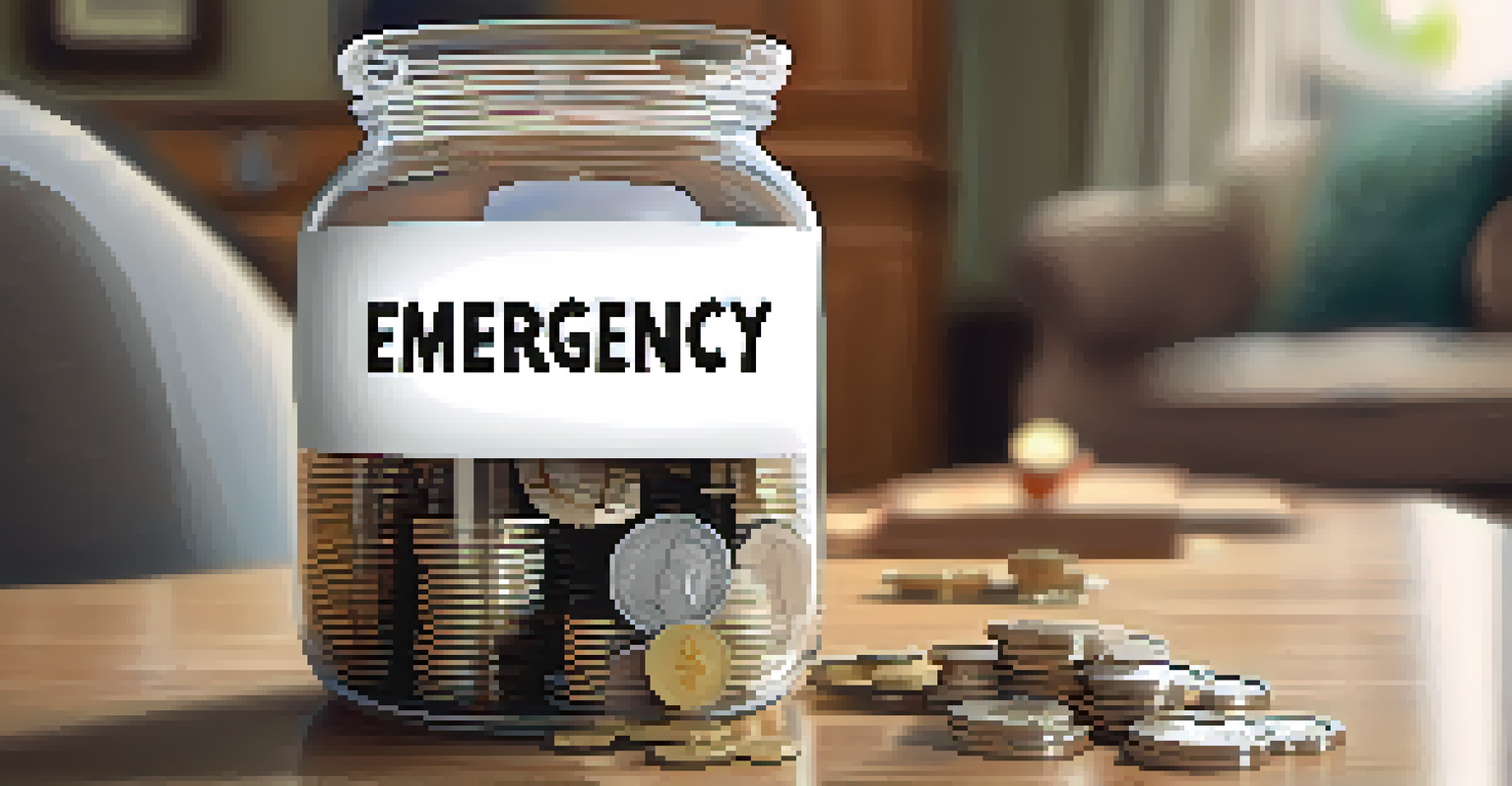Creating a Personal Budget: Steps to Financial Success

Understanding the Importance of a Personal Budget
A personal budget serves as your financial roadmap, guiding you to make informed decisions about your money. It helps you identify where your money is going and ensures you’re living within your means. Without a budget, it’s easy to overspend and accumulate debt, which can lead to financial stress.
A budget is telling your money where to go instead of wondering where it went.
Think of your budget as a GPS for your finances. Just like a GPS helps you navigate through unfamiliar territory, a budget helps you track your income and expenses. This way, you can make adjustments along the way to stay on course towards your financial goals.
Creating a budget is not just about restricting yourself; it’s about empowering you to take control of your financial future. By understanding your spending habits, you can prioritize what matters most and allocate funds accordingly, paving the way for financial success.
Assessing Your Financial Situation
Before diving into budgeting, it’s essential to assess your current financial situation. Start by calculating your total income, including salary, bonuses, and any side hustles. This gives you a clear picture of how much money you have to work with each month.

Next, it’s time to list all your monthly expenses. Include fixed costs like rent and utilities, as well as variable expenses such as dining out and entertainment. This comprehensive overview will help you identify areas where you might be overspending.
Budgeting Guides Financial Choices
A personal budget acts as a financial roadmap, helping you track income and expenses while avoiding overspending.
Once you have a clear understanding of your income and expenses, you can better pinpoint your financial strengths and weaknesses. Knowing where you stand is the first step in creating a budget that works for you.
Setting Clear Financial Goals
Setting clear financial goals is crucial to successful budgeting. These goals can range from saving for a vacation to paying off debt or building an emergency fund. Having specific targets gives you something tangible to work towards, motivating you to stick to your budget.
By failing to prepare, you are preparing to fail.
Consider using the SMART criteria for your goals—Specific, Measurable, Achievable, Relevant, and Time-bound. For instance, instead of saying, 'I want to save money,' specify, 'I want to save $500 for a vacation by next June.' This clarity can significantly boost your commitment.
Remember, your financial goals should reflect your values and priorities. Whether it’s buying a home or saving for retirement, aligning your budget with your goals helps create a meaningful financial plan that you’re excited to follow.
Creating Your Budget Plan
With your financial situation assessed and goals set, it's time to create your budget plan. There are various budgeting methods you can choose from, such as the 50/30/20 rule, which allocates 50% of your income to needs, 30% to wants, and 20% to savings and debt repayment.
Another popular method is zero-based budgeting, where you allocate every dollar of your income to expenses, savings, or debt repayment, leaving you with a balance of zero at the end of the month. This method ensures that you think critically about each dollar you spend, promoting mindful spending habits.
Set Clear Financial Goals
Establishing specific financial goals motivates you to stick to your budget and prioritize your spending.
Whichever method you choose, make sure to document your budget clearly, whether on paper or through budgeting apps. This visibility will help you track your progress and adjust as needed, ensuring you stay aligned with your financial goals.
Tracking Your Spending and Adjusting Your Budget
Tracking your spending is vital to the budgeting process. Regularly reviewing your expenses will help you understand whether you are sticking to your budget or if adjustments are needed. This step is crucial for staying accountable and identifying any unexpected costs that may arise.
Consider using budgeting tools or apps that can simplify this process. Many of them allow you to connect your bank accounts and automatically categorize your spending, making it easier to see where your money is going. This technology can be a game-changer in maintaining your budget.
Don’t be afraid to adjust your budget as life changes. If you receive a raise, start a new job, or your expenses change, revisit your budget. Flexibility is key to ensuring that your budget remains relevant and effective in helping you achieve your financial goals.
Building an Emergency Fund for Safety
An emergency fund acts as a financial safety net, providing peace of mind in case of unexpected expenses like medical bills or car repairs. Aim to save at least three to six months' worth of living expenses. This fund can help you avoid going into debt when life throws you a curveball.
To build your emergency fund, set aside a small portion of your income each month. Treat this savings like a regular expense in your budget, prioritizing it just as you would rent or groceries. Over time, these small contributions will add up and create a solid financial cushion.
Emergency Funds Provide Security
Building an emergency fund creates a financial safety net that helps you manage unexpected expenses without going into debt.
Having an emergency fund not only protects you financially but also reduces stress. Knowing you have resources to fall back on provides a sense of security that allows you to focus on your long-term financial goals without the fear of unexpected setbacks.
Reviewing and Celebrating Your Financial Progress
Regularly reviewing your budget and financial progress is essential to ensure you are on track. Set aside time each month to assess your spending, savings, and progress towards your goals. This reflection allows you to celebrate successes and identify areas for improvement.
Don’t forget to celebrate your achievements, no matter how small they may seem. Whether it’s reaching a savings milestone or successfully sticking to your budget for a month, acknowledging these victories can boost your motivation and commitment to your financial journey.

Lastly, remember that budgeting is a continuous process. Life changes, and so do your financial circumstances. By keeping an open mind and regularly adjusting your budget, you can adapt and thrive financially, making your financial success a sustainable reality.